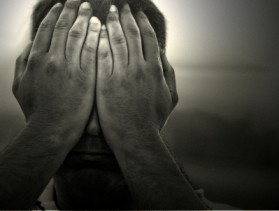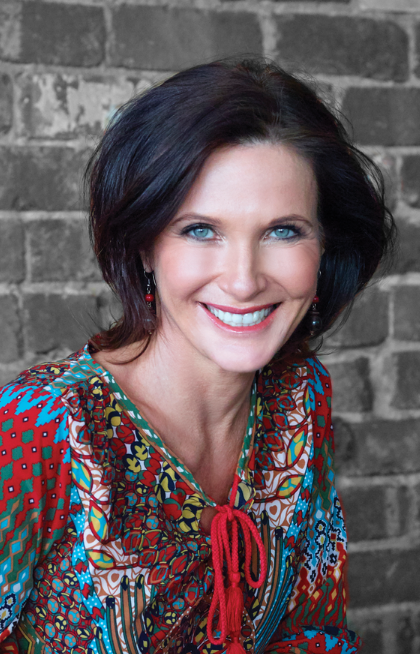The Fort Hood tragedy: what emotions has it triggered in you?

 The shootings at the military base in Fort Hood last week were tragic. There is no upside. Twelve good men and women now lie dead. Thirty others are still recovering from injuries. Countless more are still weighted down with incredible grief and shock and anger as they come to terms with the loss of those they loved and served their country with.
The shootings at the military base in Fort Hood last week were tragic. There is no upside. Twelve good men and women now lie dead. Thirty others are still recovering from injuries. Countless more are still weighted down with incredible grief and shock and anger as they come to terms with the loss of those they loved and served their country with.
No doubt in the weeks ahead we will hear a lot about the possible motivations and warped thinking of Nidal Hassan, the man accused of murdering these people. This psychiatrist will find himself being psycho-analyzed again and again and again. And at the end of it all, we will still be left with more questions than answers. We will also be left wondering, is there anywhere that we can feel safe anymore? Who can we really trust? How could the warning signs from such an unstable person been missed?
I do not want to focus this newsletter on why Nidal Hassan did what he did. Nor on who he is. Nor on what systemic malfunction permitted him to be in the role he was. Lord knows the media are working overtime doing that. Rather I think it is of more value to you (and me) to explore how we, in the face of such an event which has triggered such intense horror and grief, can continue to move forward as wholehearted, trusting, compassionate and courageous people?
Sadness, horror, grief, anger, disillusionment – all of these are normal and healthy emotions which help us navigate our way through life and point us to what matters most to us. The well-being of those we love, our own safety and security and the importance of loyalty . . . to our friends, to our colleagues, to our country.
If we don’t own our emotions, they own us. Acknowledging our emotions is crucial if we are not to be consumed by them. Every emotion you feel is legitimate. It is also constructive. . . to a point. If your anger motivates you to address a perceived injustice then that is a good thing. If your fear motivates you to do get out of harm’s way then that is also a good thing. Likewise if your sadness helps you realize how much you care about something (or someone) then that is a good thing too. However there is an important difference between emotions that positively motivate us and those that control us. Sadly, all too often emotions like anger and fear take such a firm hold on our psyche that they cloud our thinking and drive us to to act in ways that sabotage our relationships, suck the joy out of our lives and create profound suffering.
Constructive emotions become destructive when we hold on to them beyond their usefulness. Emotions become destructive when we hold on to them beyond their usefulness. If you are still feeling angry about the grade your high school teacher gave you back in 1983 it’s time you let it go. Sure, take the learning the event provided but leave behind the emotion that weighs you down. Likewise if you are allowing your fear of something bad happening to you to keep you from getting on with living your life fully then perhaps you need to make the decision to be more courageous. Last week’s events don’t change the fact that most of the things we fear might happen never actually occur.
Emotions are like Ying and Yang: We cannot feel great joy unless we are open to deep sorrow. We human beings are emotional creatures. We cannot be whole unless we are open to feeling fully the array of emotions that come with the privilege of being human. When we deny, discount or numb (through alcohol, shopping, drugs or any other means) an uncomfortable emotion, we also limit ourselves from feeling its opposite. You cannot experience the richness of joy in life unless you are also willing to experience its deep sorrow. You cannot experience the delight of an intimate relationship unless you are also willing to allow yourself to become vulnerable to the pain of loss and rejection. You cannot have your cake and eat it too. As Mary Tyler Moore once said, “Pain nourishes courage. You can’t be brave if you’ve only had wonderful things happen to you.” Actually I would say, you can’t know joy or delight or accomplishment or any great emotion if nothing has ever gone wrong.
We create suffering when we deny, discount or avoid feeling fully. So as you work through your own emotions in the wake of Fort Hood, or in the wake of any significant experience that has left you upset over recent days or months, remember that unpleasant emotions are not something to be avoided, played down or numbed. They need to be felt. We inadvertently create for ourselves far more suffering (and neurosis) by refusing to feel pain and suffering, than by embracing it as a normal part of the human experience. (My book Find Your Courage includes some powerful excercises to help you release negative emotions).
Suffering and sadness are as integral a part of your journey through life as joy and love. No one gets through life without an experience of it. While we cannot choose whether to experience it, we can choose HOW we will experience it. We can embrace it or rail against it. We can learn from it or we can grow bitter from it. We can try to find logic within it or we can simply live in the mystery and accept that some questions may never be answered. We can let it harden our hearts or we can let it open them, making us more compassionate to the suffering of others. We can drown in it or we can, with time and faith, rise above it.
For those who lost family members and friends last week in Texas (where I am heading tomorrow), I can only extend my deepest sympathy. I do not pretend to know the depth of their sorrow, but I do know that this sorrow is not an end destination, but rather a season that they will one day, with grace and courage, leave behind.
I invite you to feeling more fully all the emotions that life stirs up in you. And as you do, know that the sum of who you are is bigger than any single emotion; that within you lies all the strength and courage you ever need to live wholeheartedly and rise above the challenges and sorrows that may come your way.
Until next time, live wholeheartedly. The alternative is not really living at all.


